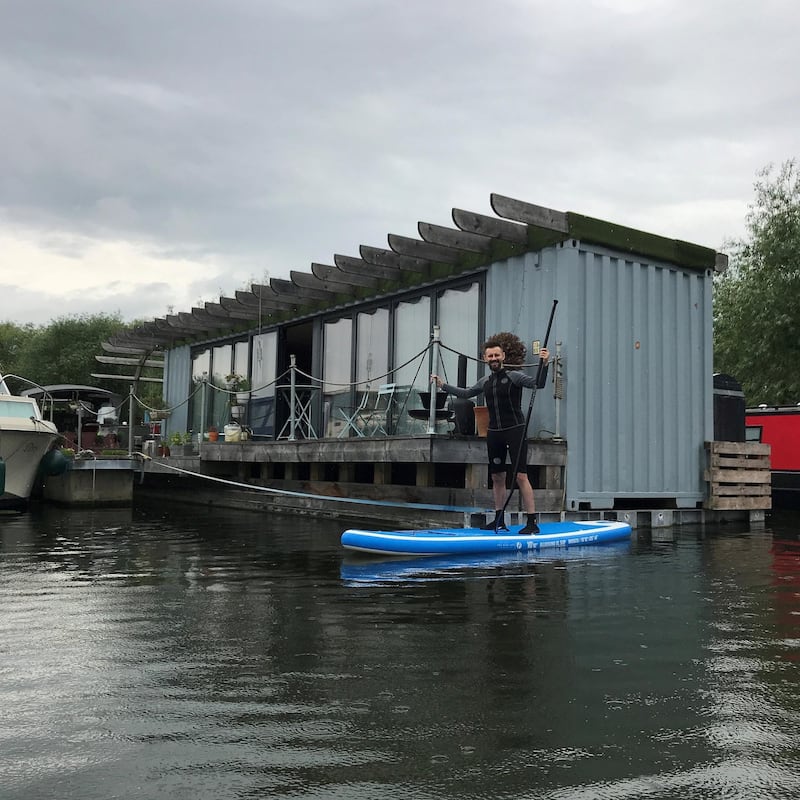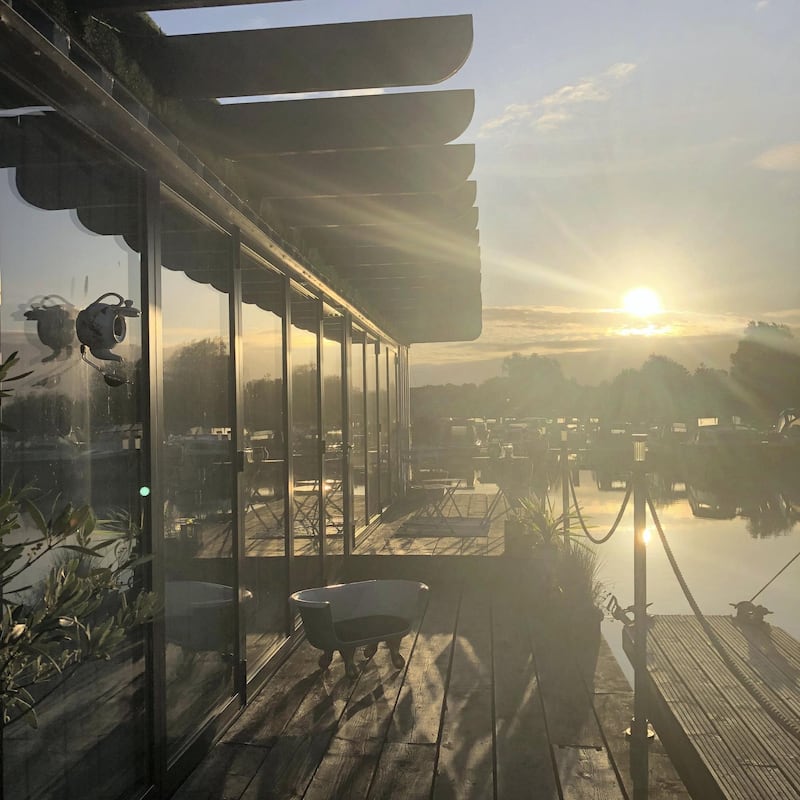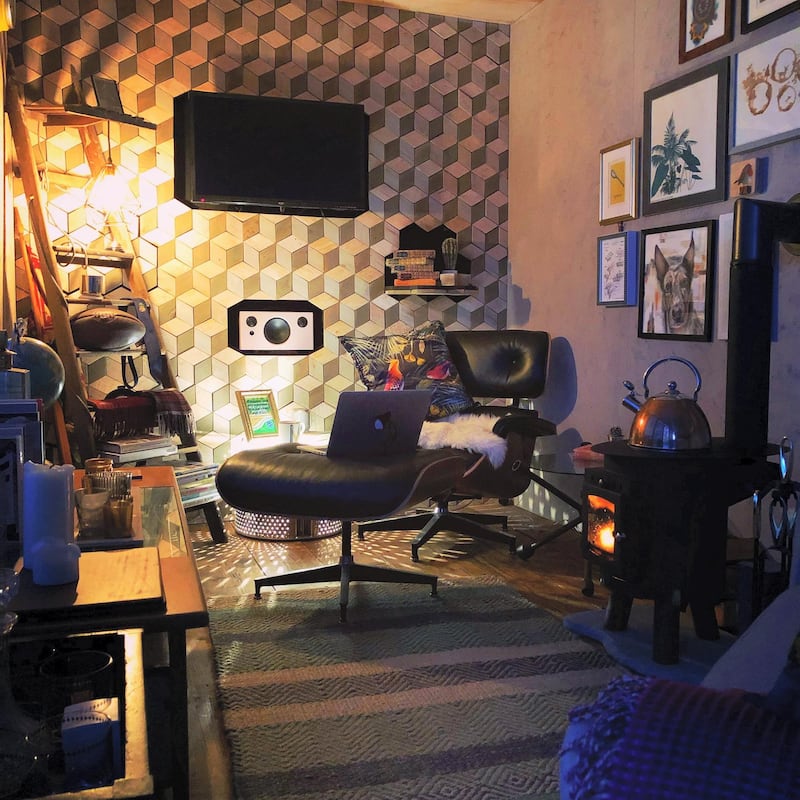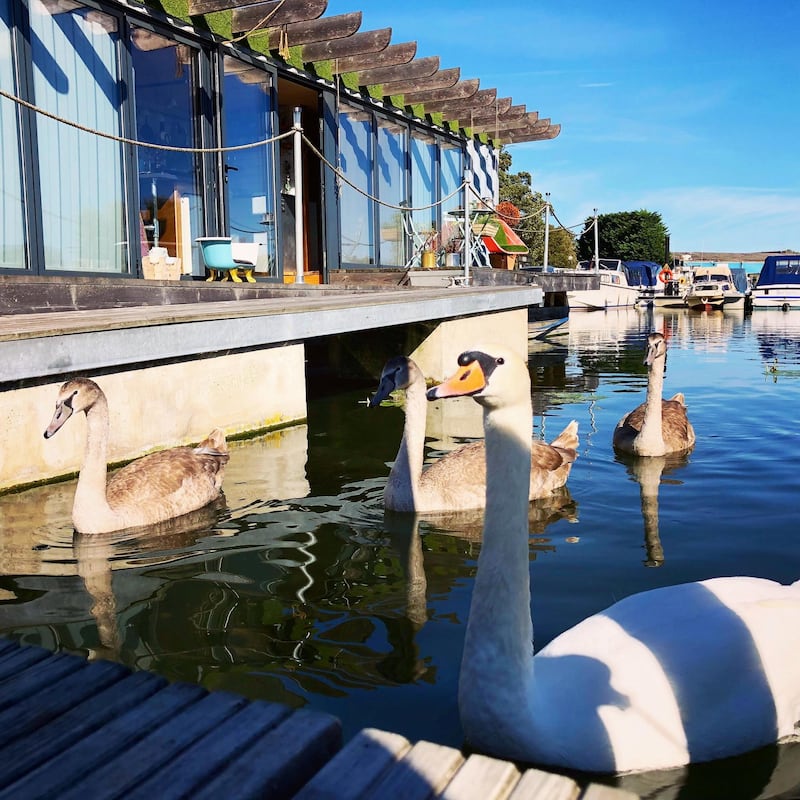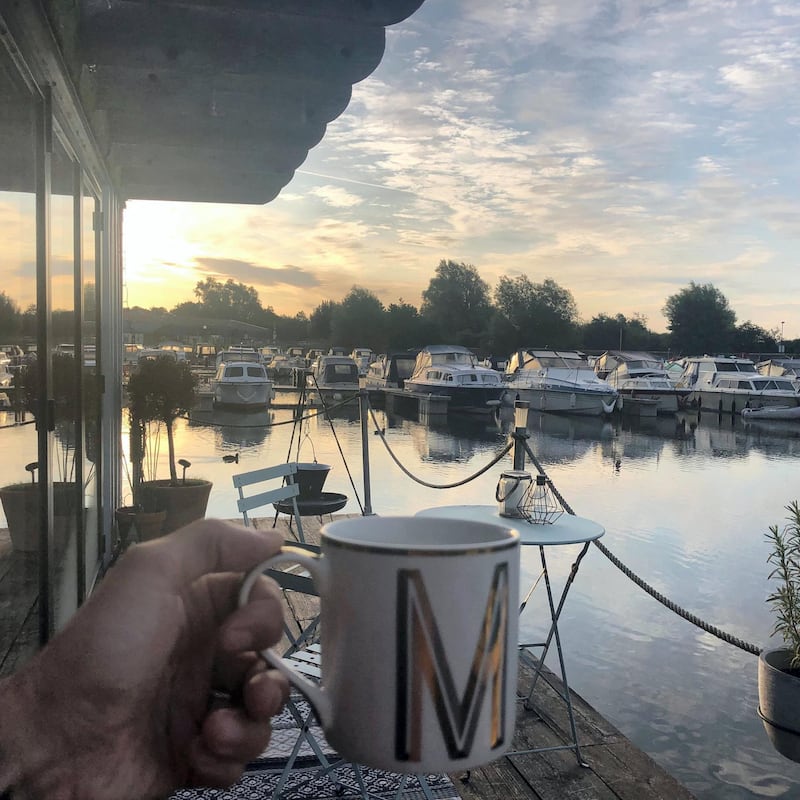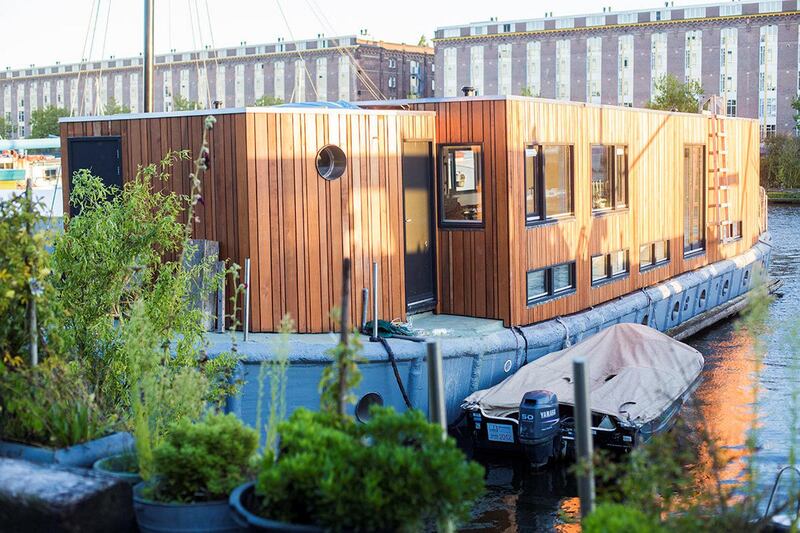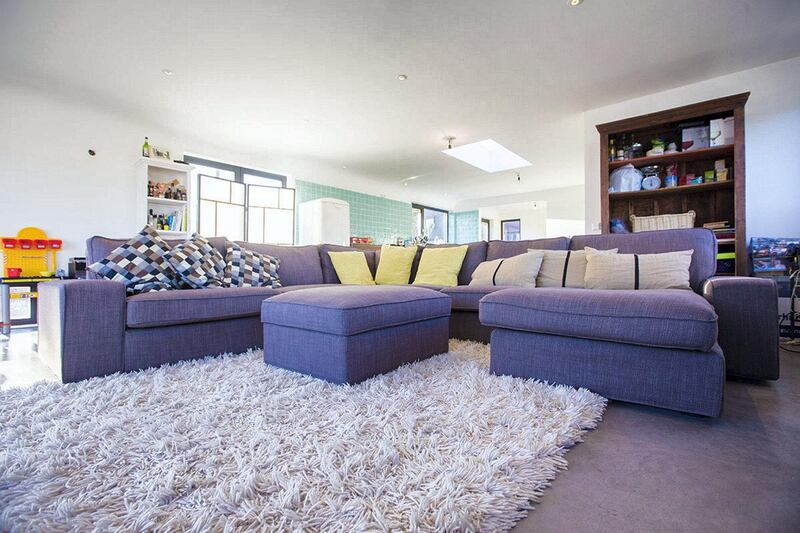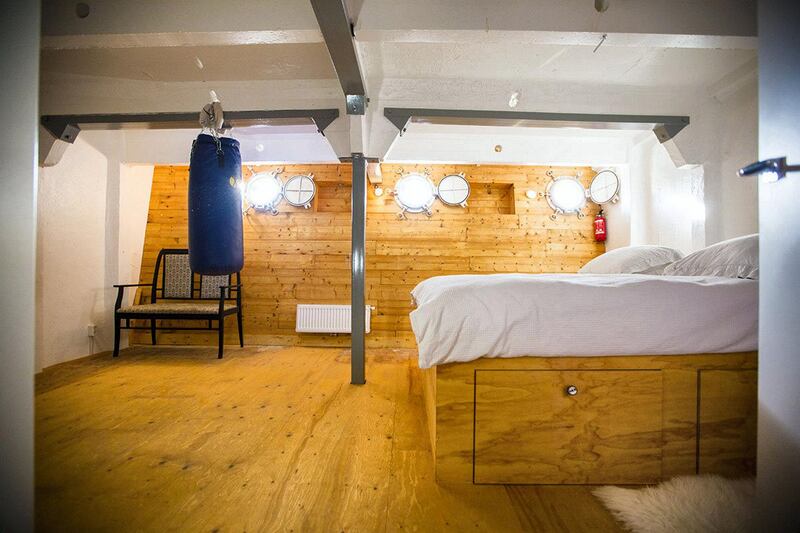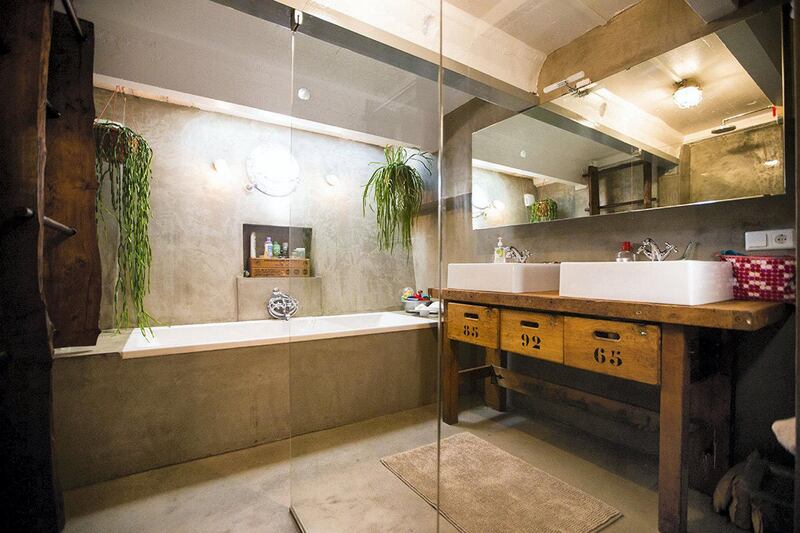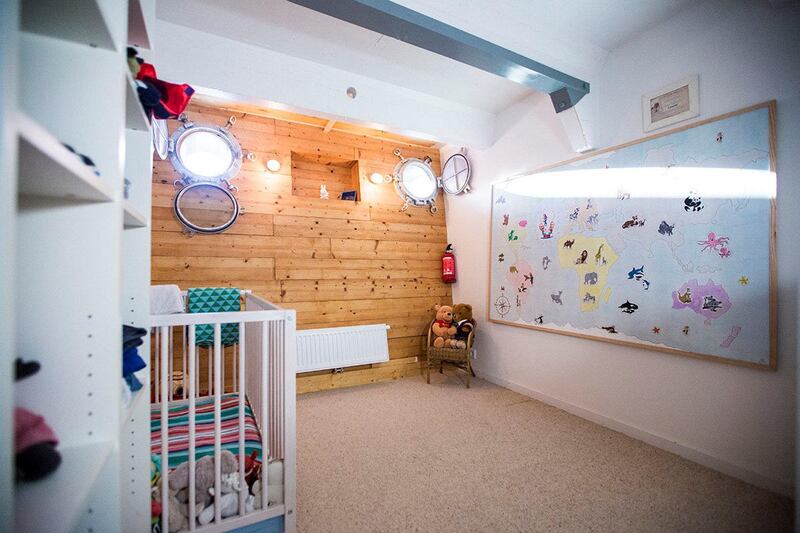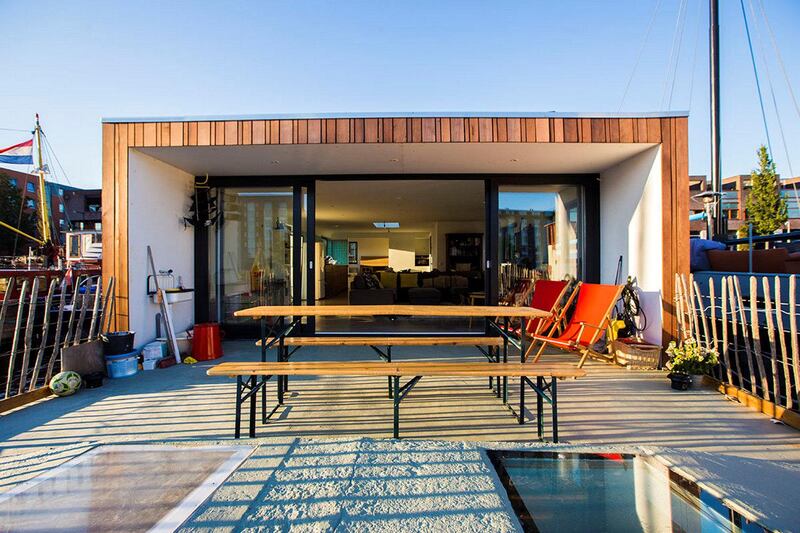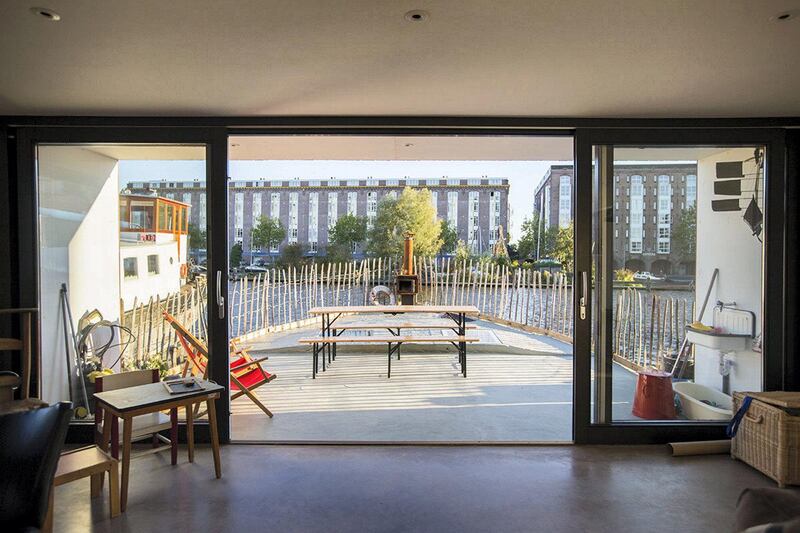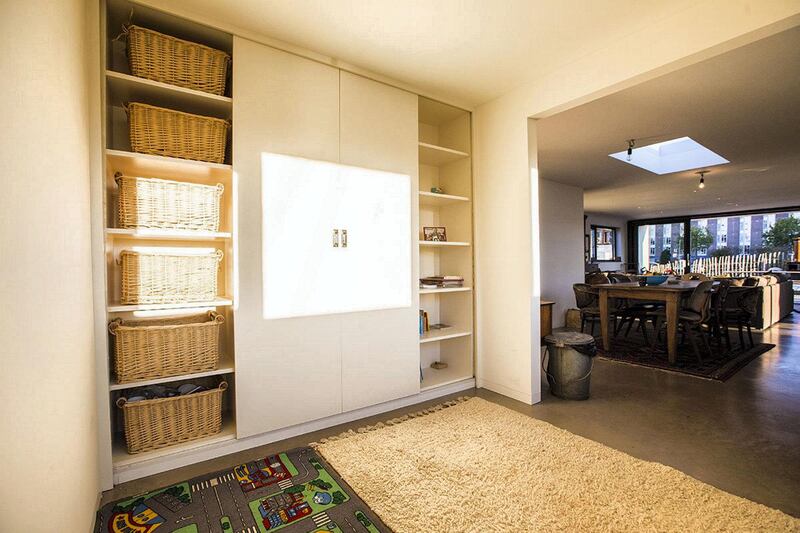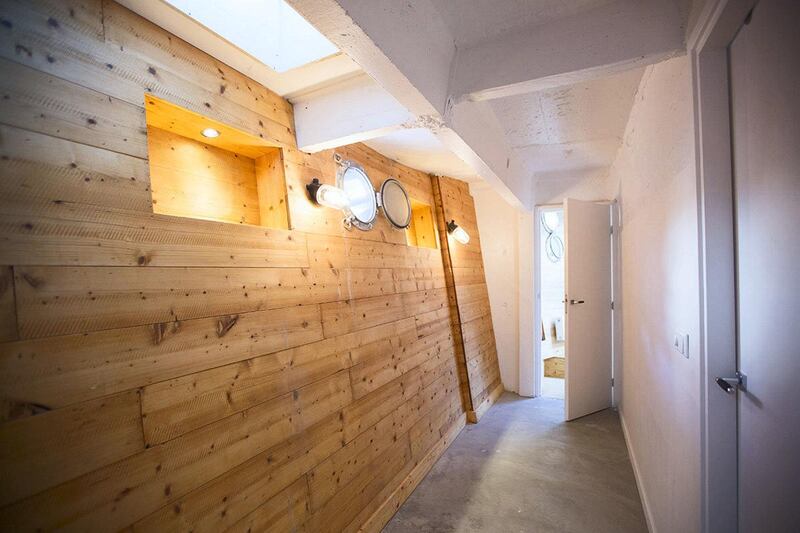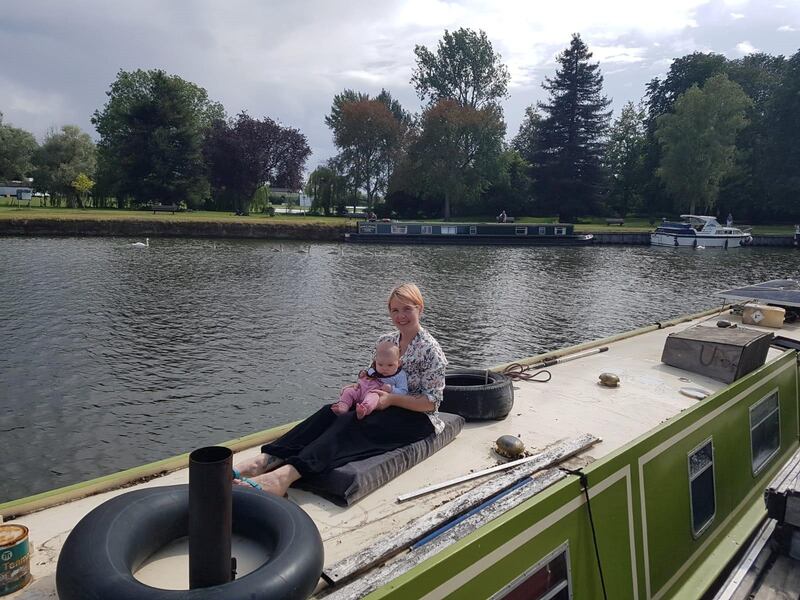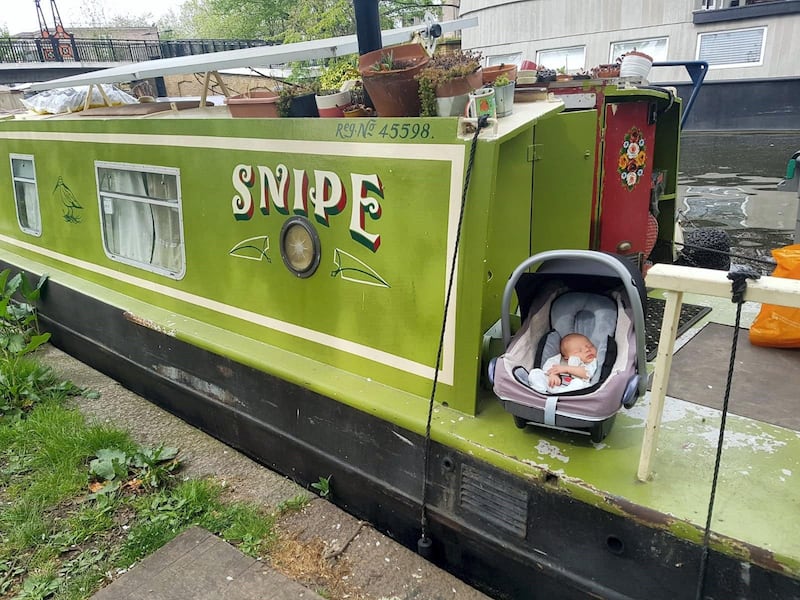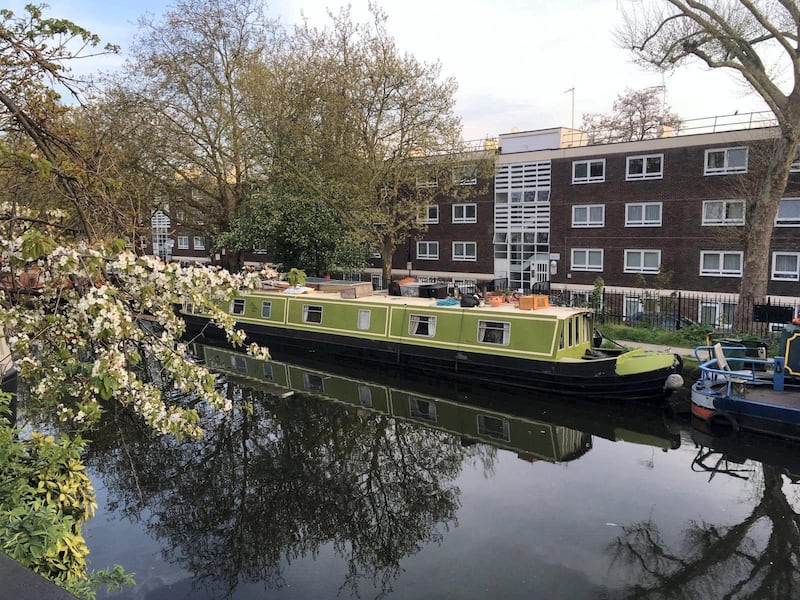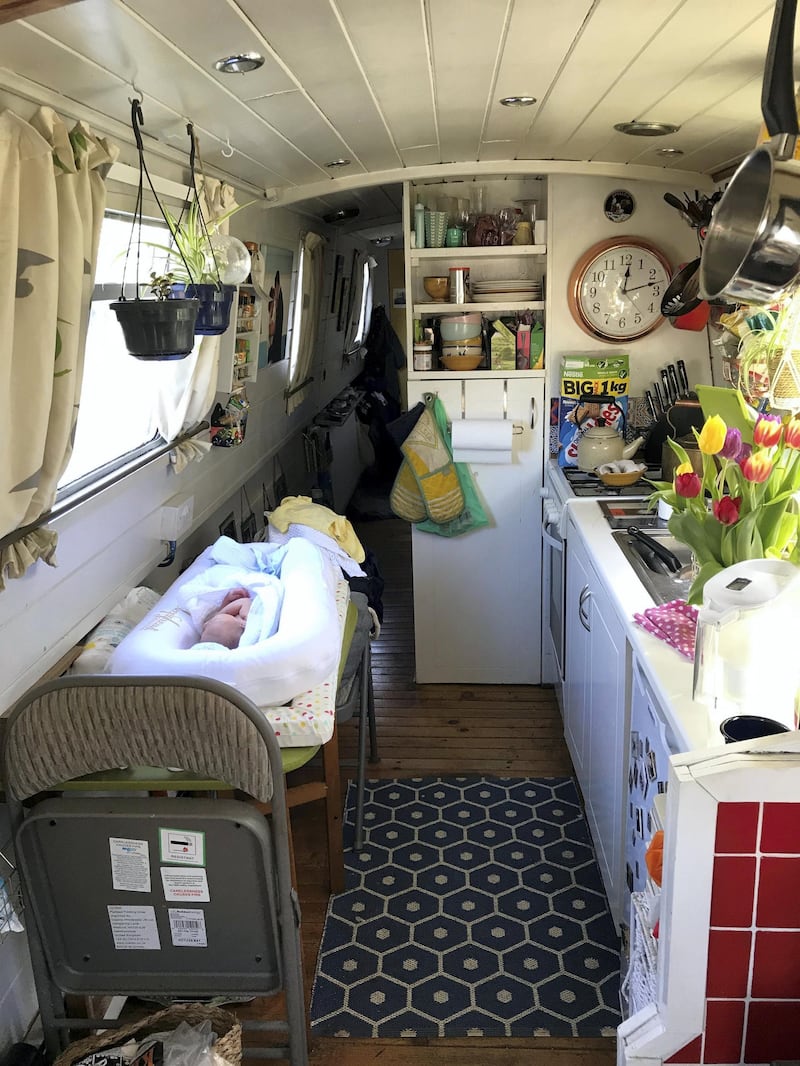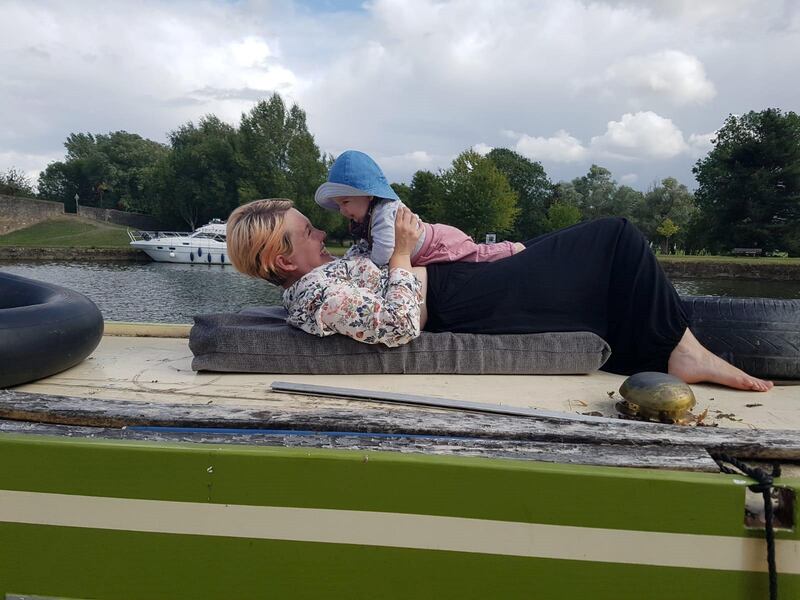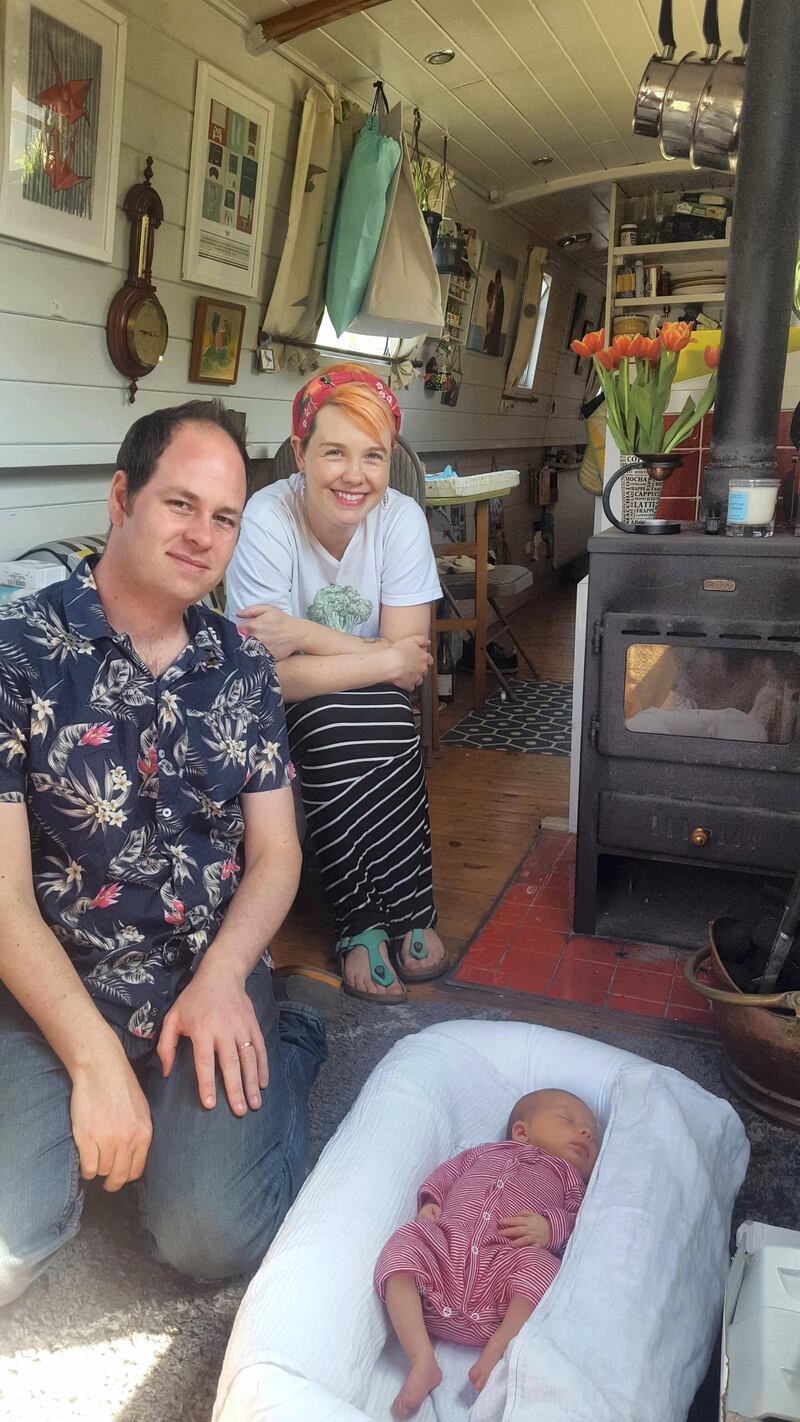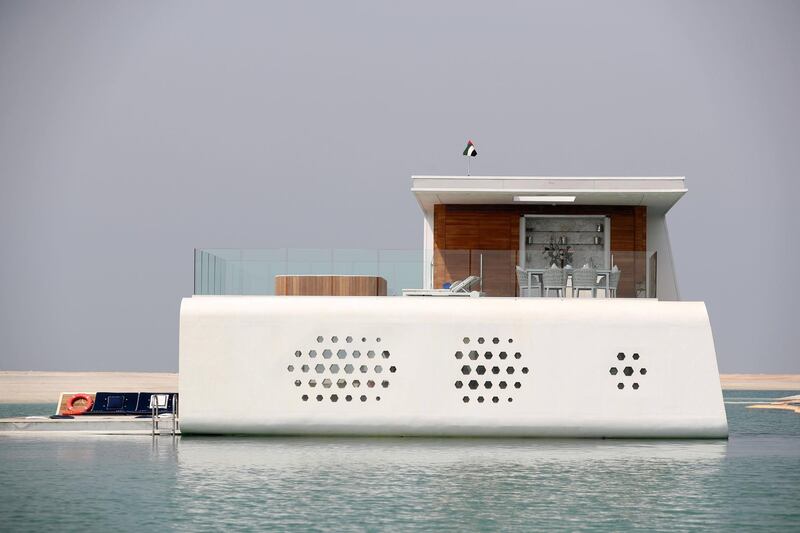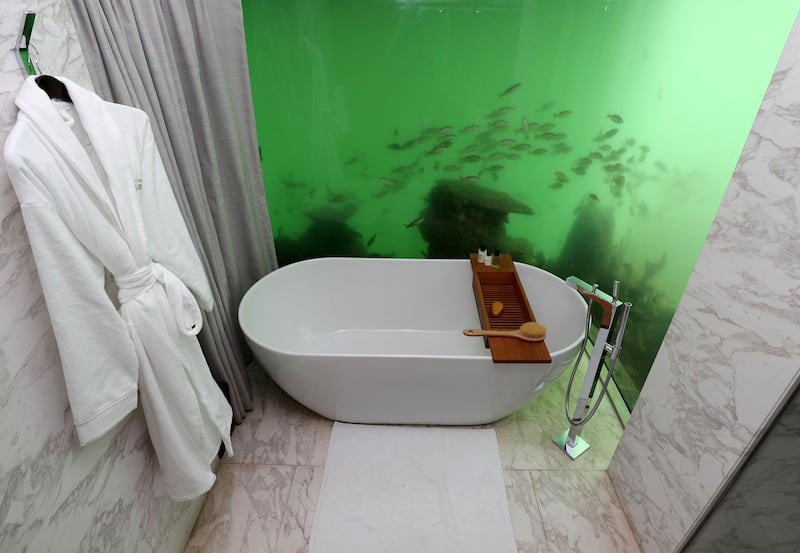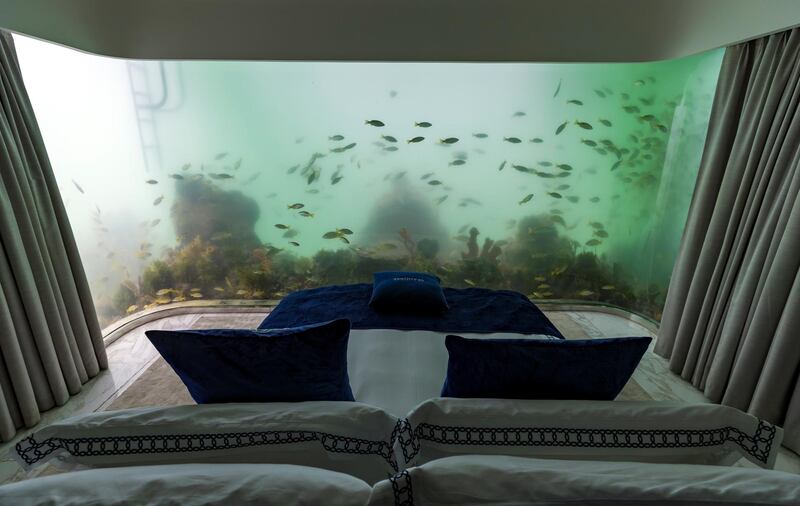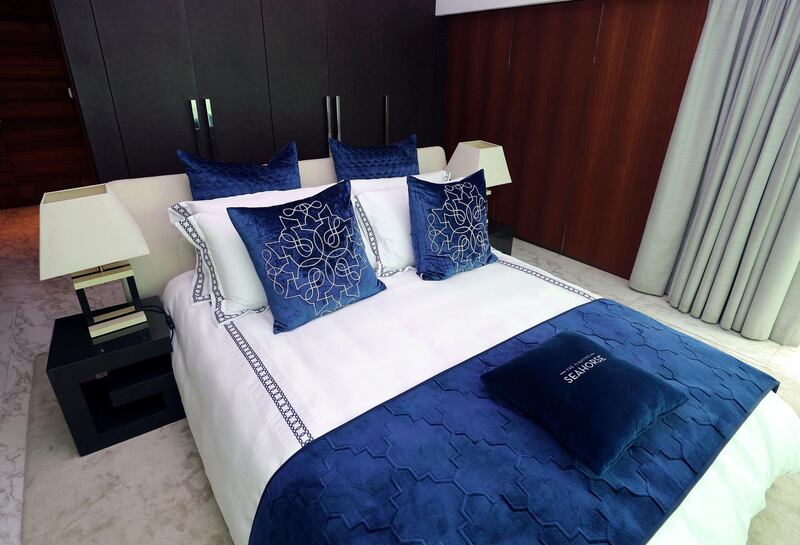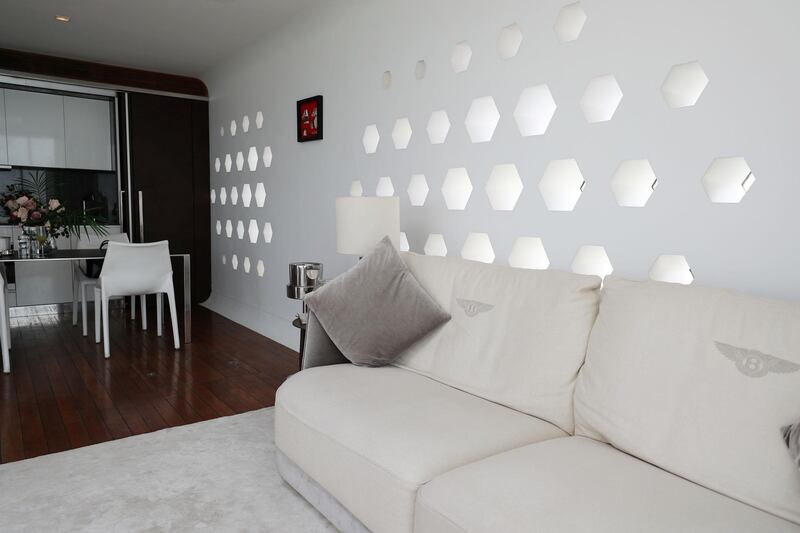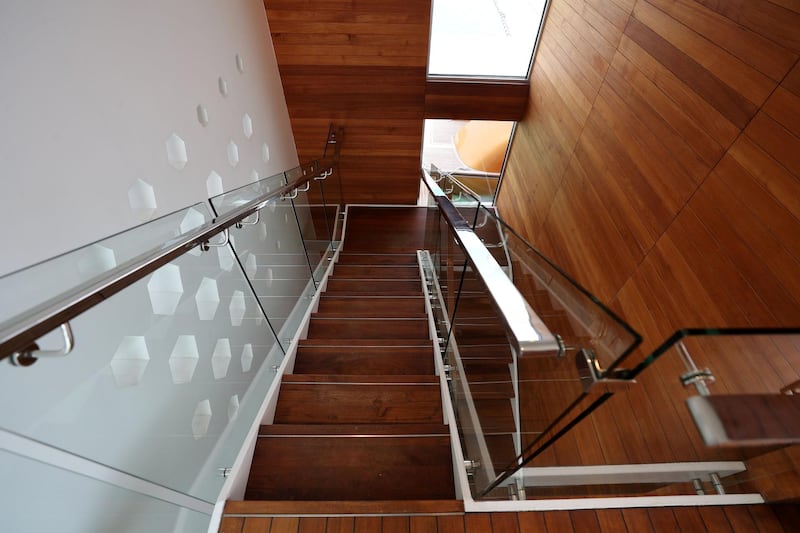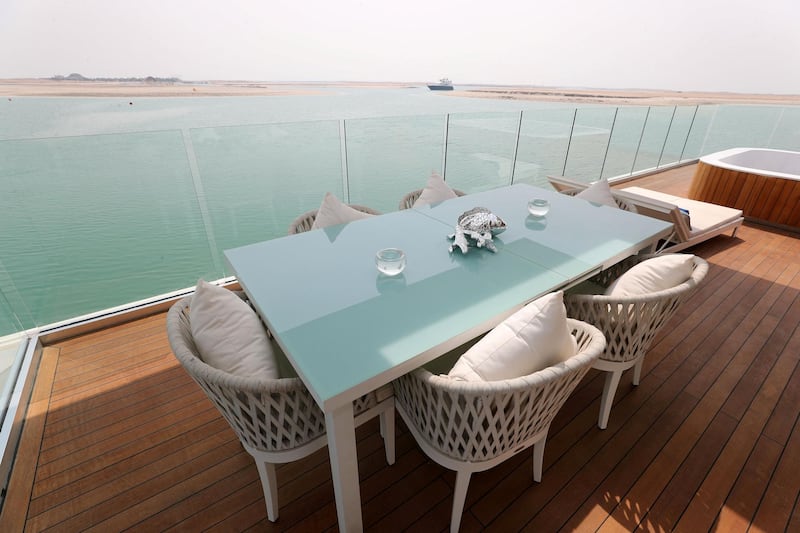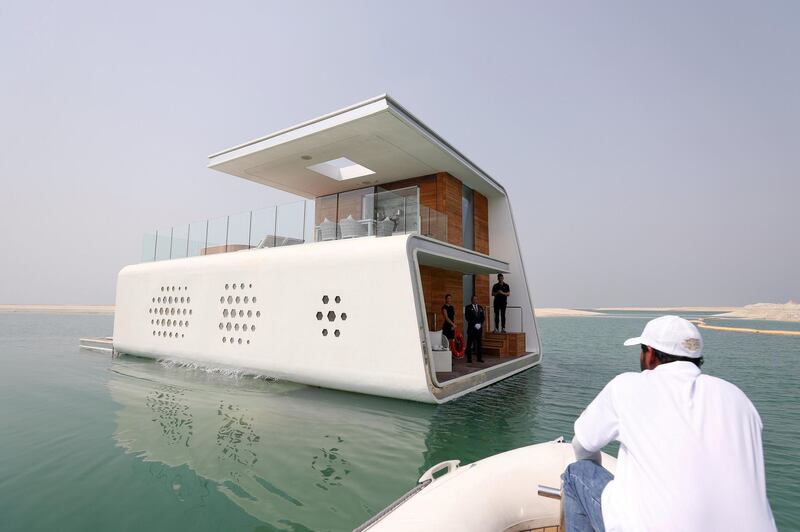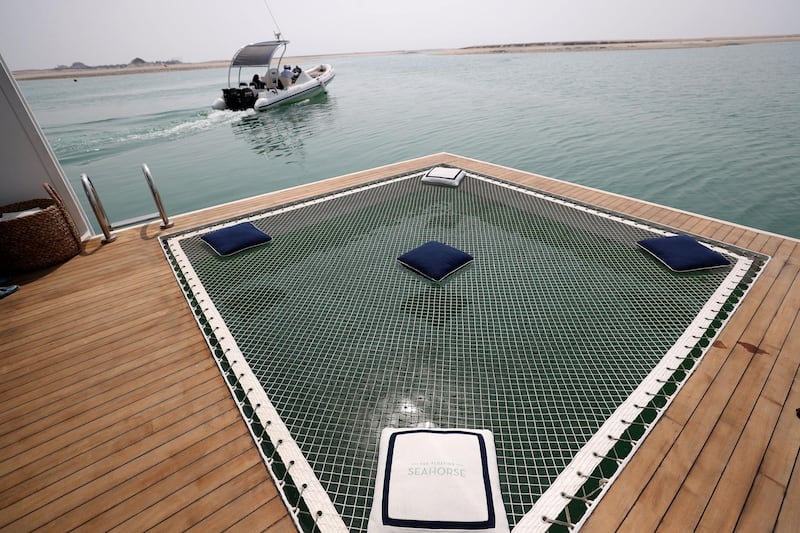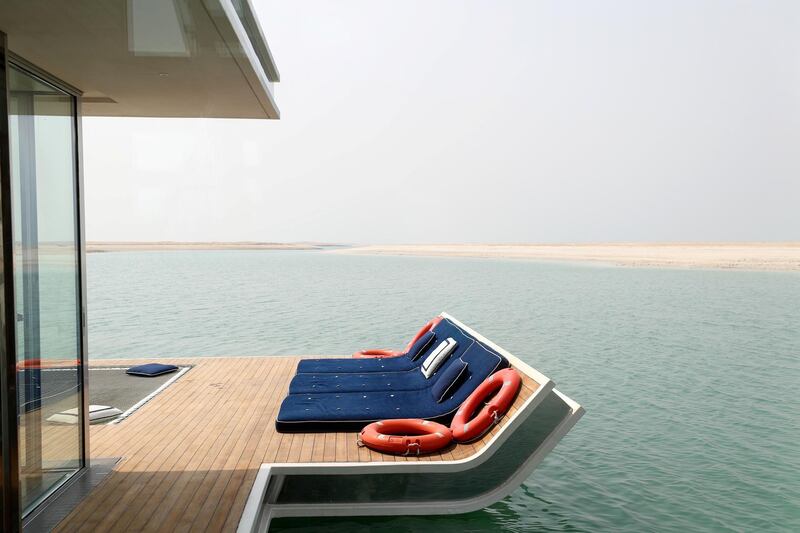The Floating Seahorse development sits four kilometres off the coast of Dubai in the middle of The World islands, promising to create 131 luxury floating villas by 2021. Each abode is set to boast plunging underwater bedrooms that offer a glimpse into the deep blue sea. Buyers of the extravagant vessels could become the first in the world to hold their very own section of the ocean, with the plot beneath the structure included in the asking price – which is set at an eye-watering Dh20 million.
Developer Josef Kleindienst expects the villas to “revolutionise ocean living”. However, seafaring homeowners in Dubai will not be the first to turn their backs on traditional bricks and mortar for a more fluid way of life. In Europe, more and more people are giving hefty mortgages a wide berth to hit the high tide.
Mortgage-free living
British upcycling guru Max McMurdo built his own boat home single-handedly out of an old shipping container and now lives on the vessel full time. "I got sick of being a slave to my mortgage and becoming transfixed with the rat race," says McMurdo, 41, who owns upcycling company Reestore. "We're never happy, we always want a bigger house and material possessions and I just wanted to escape from all that."
Three years ago, McMurdo sold his cottage in Bedford, England, for £50,000 (Dh238,799) and bought a £2,000 steel storage unit. He transformed the 12-metre metal shell into a bright open-plan home packed with space-saving solutions and designs, on Bedford Marina, over the course of three-and-a-half months. McMurdo invested the remaining £48,000 in renovations, removing one side of the moored container and fitting floor-to-ceiling folding doors to open up the space.
“When I said I was going to build a floating house out of a shipping container everyone thought I was mad,” McMurdo says, with a laugh. “It was a bit of a punt to be honest. I’d never upcycled anything on that scale but the gamble paid off and now I’m living in my dream home mortgage-free.”
While space in his one-bedroom pad might be tight for some, for McMurdo, it's ideal. "It's a bit snug when I have mates over, but I built it for me," he says. "I don't want to share it with anybody. I've designed it so every last fixture and fitting has a purpose. There's a hidden bath fitted below the shower, a massive wardrobe space beneath the bed and loads of hidden compartments."
The best part is the slower pace that living on his floating dream house affords. “When you wake up on a morning to rippling sunlight dancing across your ceiling and the sound of birds singing outside, it’s just phenomenal. It’s like my own little slice of paradise,” he says with a smile.
“In the summer I’ve got the barbecue going as the sun goes down and in the winter I keep toasty by the log burner. It’s perfect for every season.
“You become so close to nature living on the water,” he continues. “I have a heron that literally comes and sits on my decking and there are a few swans that pop their heads in every now and again. I used to be a bit scared of swans before, but your perception changes.”
Now, McMurdo is in talks about a potential floating housing project in the UK that would help first-time buyers to work towards owning their own home. “It’s very difficult to get a mortgage on a floating home, but it’s a more affordable way of life and you don’t have huge payments hanging over you every month,” he explains. “I can’t ever see myself living on dry land again.”
A rising trend in The Netherlands
The same can be said for Dutch houseboat owner Juul Steyn, 42, who lives on a converted British warship dating back to the Second World War, with his wife Iris, 40, and their two children Louie, 6, and Senna, 3. The 1943 170-square-metre vessel is worth about €900,000 (Dhs3.6 million) and is moored on the Borneokade in Amsterdam. This is as plush as a houseboat gets, with three bedrooms, a 25-square-metre terrace, underfloor heating, a bath, double shower and a fully equipped kitchen complete with a dishwasher.
“Living on boats has always been a thing in the Netherlands, as about a third of the country is below sea level,” explains Steyn, a fisherman. “Years ago it wasn’t the type of thing you’d mention at a dinner party, but these days houseboats in Amsterdam can cost more than €1m and it’s not just hippies who live on them.”
Steyn has lived on boats for 12 years and has seen many changes on the Dutch capital’s waters during that time. “Just a few years ago there was no sewage system, but now everything’s really slick. We’ve got our power supply connected and all the mod-cons of a regular house, but we’re surrounded by nature. “Obviously we have to be careful with the kids, and a mobile phone or two has gone over the edge, but we’ve renovated our dream home and I can’t imagine living anywhere else.”
In recent years, the canals of Amsterdam have become crowded with residents and holidaymakers taking to the water, prompting Steyn to launch a website, bookahouseboat.com. Users can search for boats to rent around the world, with vessels available for stays in Canada, Germany, Finland and the US, among other countries.
Bringing up baby on a barge
Back in the UK, freelance writer Kim Easton-Smith, 34, lives on a more traditional barge in London with her husband Adam, 35, a composer, and their four-month-old baby girl, Iris. The family live on a 19-metre long, two-metre wide narrowboat without a mooring, meaning they must continuously cruise across the city's canals spending no more than two weeks at any one place.
“London is so expensive,” explains Easton-Smith. “We had a shared flat in north London for a long time and then we lived in a flat on our own for a couple of years before moving on to the boat three years ago.
“We had enough money to buy a boat, but it wouldn’t have gone very far as a deposit on a flat or a house in London.”
The couple paid £39,000 for their houseboat, although they had to pay the full amount up-front. "It's quite hard to get a mortgage on a boat," Easton-Smith explains, echoing what McMurdo says. "I think there's one or two companies that do it, but it's more like a loan than a mortgage.
“Because boats don’t go up in value, it’s not really something that lenders are particularly keen on, especially if you don’t have a mooring. You’re legally not allowed to rent your boat in London, I think just because of the safety and security aspect.”
Bound by strange laws
The rules surrounding houseboats in England can be strange and archaic, Easton-Smith adds. For example, you can't rename one. "It's bad luck," she explains. "But to get round it you can take it out of the water and give it a repaint with a naming ceremony. Our boat is called Snipe – we inherited the name and just decided to keep it."
At first, family and friends were surprised when Easton-Smith decided to raise baby Iris on the water, but she decided to sail on regardless. “It’s totally manageable having a baby on a boat,” she insists. “It probably would be easier in a house, but I haven’t had a baby before so I’m just taking it as it comes.
“As she gets older and starts moving around more we might have to look into moving back on to dry land, but we love the freedom of the water and we want to continue it as long as possible.”
Is living on a boat possible in the UAE?
Back in the UAE, living on an actual boat is rare, but not unheard of, with houseboats docked in marinas across Dubai and Abu Dhabi. Any resident can own or register a private boat or yacht in the country, as long as it reaches the standards of the Federal Transport Authority or the Dubai Maritime City Authority. Houseboat dwellers must pay a boat docking fee, which is often considerably lower than rents, with annual berth fees at Yas Marina starting at Dh19,830.
The Floating Seahorse villas, however, are aiming to offer an entirely new level of luxury for ocean lovers. Each villa is set to have a glass-bottomed private Jacuzzi, a fully furnished kitchen, private sun deck, man-made coral reef garden and space to dock a boat.
"They are the first floating villas with an underwater experience in the Middle East," says Kleindienst. "They present an entirely new experience."
Ocean living is not for everyone, but, whether you opt for the kind of upmarket sea-faring abode being promised in the UAE or dive in with a mortgage-free vessel elsewhere in the world, it might be time to take the plunge.
